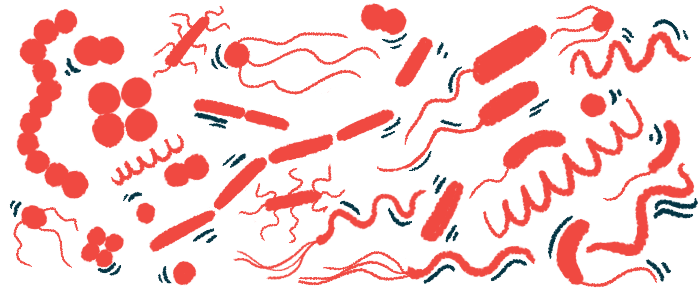CF treatment Trikafta boosts friendly bacteria in adolescents
Study shows therapy may help prevent infections
Written by |

A cystic fibrosis (CF) therapy slightly but significantly increased diversity in the lung microbiome, the community of microorganisms found in the lungs, in adolescents with the disease, a study in Switzerland found.
Treatment with Trikafta was specifically linked to an increase in commensal bacteria, those commonly present in healthy lungs and not causing harm to humans. “Initiation of [Trikafta] therapy may shape the microbiome to a healthier composition, as shown in our study, which may prevent subsequent infections and recurrent antibiotic therapies,” the researchers wrote.
The study, ”Longitudinal effects of elexacaftor/tezacaftor/ivacaftor on the oropharyngeal metagenome in adolescents with cystic fibrosis,” was published in the Journal of Cystic Fibrosis.
In CF, lack or dysfunction of the CFTR protein leads to the accumulation of thick and sticky mucus, particularly in the lungs and the digestive tract. Mucus buildup provides a fertile ground for bacteria growth and frequent lung infections.
Studies have shown that even in the absence of disease-causing microorganisms, patients experience lung microbiome alterations that may be tied to lung function decline.
CF treatment and the microbiome
Trikafta, a combination of elexacaftor, ivacaftor and tezacaftor, has been shown to significantly improve lung function while reducing pulmonary exacerbations, or acute worsening of symptoms, and lessen the use of antibiotics in people with CF.
“It would be of particular interest to understand how [Trikafta] treatment modifies the lung microbiome in milder CF lung disease, which has scarcely been studied,” the researchers wrote.
To learn more, they looked at airway microbiome changes in deep-throat samples from CF patients, ages 12 to 20, from one month before to three months into Trikafta treatment. Some 297 samples from 20 patients, with a median age of 14, were analyzed.
Lung function improved with treatment in all patients, corresponding to a mean 10.4% increase in a standard measure, percentage predicted forced expiratory volume, in one second. Levels of sweat chloride, an indicator of CFTR protein functionality, significantly decreased (improved) with Trikafta.
Trikafta treatment was associated with a slight yet significant increase in microbiome diversity, meaning a higher number of identified microbial types, while evenness — the relative abundance of each microbial type — did not change. Changes in diversity were apparent after two weeks of treatment and increased over time.
“On the one hand, this shows how quickly [Trikata] alters host airway biology, and on the other hand, it may indicate that changes persist in young [people with] CF after three months of [Trikafta] therapy,” the researches wrote.
The differences were mainly related to a relative increase of commensal bacteria, particularly after more than four weeks into treatment. Results showed a decrease in the abundance of Haemophilus and an increase in Actinomyces, Alloprevotella, Peptostreptococcus, and Gemella bacteria types.
Further analysis showed generally no changes in the predominant bacteria types found within the same individual after starting treatment. This indicates that “microbial composition is highly personalized and responds within a personal range to [Trikafta] mediated changes,” the researchers wrote. However, “while we are the first to analyze the effect of [Trikafta] therapy at a strain-level, our observation time is limited to three months,” they wrote.
“Besides the known beneficial effect [Trikafta] therapy has on lung function and structural lung changes [it] also influences the microbiome composition in younger [people with] CF,” the researchers said.
Further studies are needed to understand whether early treatment may prevent the colonization with disease-causing bacteria in CF patients and if the effect is long-lasting, they wrote.







